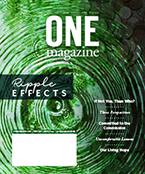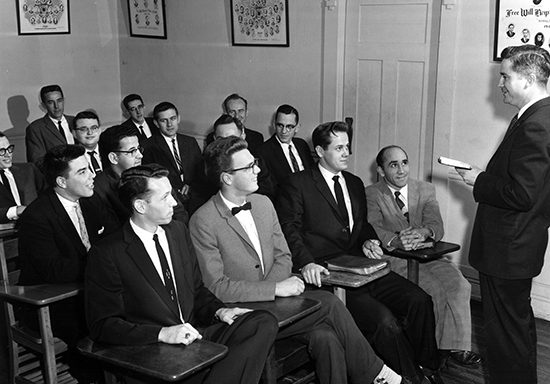
February-March 2021
Ripple Effects
------------------
|





In Memorium: Remembering F. Leroy Forlines
By Matthew J. Pinson, President, Welch College
F. Leroy Forlines, ordained minister and Welch College Professor Emeritus of Theology, died December 15, 2020, at age 94. He was the greatest Free Will Baptist systematic theologian, and his mark on Free Will Baptist life and thought is inestimable.
Born to John and Leta Forlines in 1926 and raised on a tobacco farm in eastern North Carolina, Forlines was converted in 1944, six weeks before his 18th birthday, during a revival meeting at Winterville FWB Church conducted by R.N. Hinnant.
In fall 1946, Forlines answered the call to the ministry while serving as an auto mechanic. Two years later, he entered Welch College, graduating in 1952 with the bachelor of arts degree. Forlines later said, “That experience changed my life forever. The most important thing that happened to me during those years was my decision I would believe what the Bible says, regardless of what I thought, or what others might say.”
Beginning with a course taught by Welch founding president L. C. Johnson, Forlines began to develop his singular theology, his greatest legacy to Free Will Baptists and the larger Evangelical community. He clarified and fleshed out a theology stemming from 17th century English General Baptists. Forlines melded the theology of Jacobus Arminius with that of American Reformed thinkers such as William G.T. Shedd and Charles Hodge. His work forged a unique synthesis, restating the Reformed-Arminian thought of English forebears such as Thomas Helwys and Thomas Grantham.
After a year pastoring in Newport News, Virginia, Forlines began his academic career at Welch College, where he taught, chaired the Bible and Theology Department, and served as dean of men and dean of students. He retired from full-time teaching in 1992 but continued to teach part-time while engaging in research and writing. Forlines preached and lectured widely, including a four-month tour in the former Soviet Union in 1996. He served on the Commission for Theological Integrity for 50 years, most as its chairman.
Forlines met his wife, Carolyn LeFay Gilbert of Cordova, Alabama, while they both were teaching at Welch, he in theology and she in English. They married August 4, 1956, and were blessed with two sons, Jonathan (Jon) and James, who both have distinguished themselves in Christian ministry. Dr. Fay Forlines lovingly and unflinchingly supported her husband’s ministry, enabling him to fulfill his calling at Welch and also to earn three advanced degrees: the M.A. from Winona Lake School of Theology, the B.D. (M.Div.) from Northern Baptist Theological Seminary, and the Th.M. from Chicago Graduate School of Theology. At these schools he studied under theological luminaries such as H.D. McDonald, Carl F.H. Henry, Warren C. Young, and Kenneth Kantzer.
Forlines’ family life and career exemplified his emphasis on the “total personality,” that human beings most deeply express their design as image-bearers of God when they give place to all three facets of their personalities: intellect, will, and emotions. This is seen in Forlines’ love for the life of the mind, the Christian worldview and its transformative implications for human culture. It is also seen in his love for his family and his investment in countless individuals. Finally, it is reflected in his commitment to holy living as the Christian world and life view takes on flesh in everyday decisions.
One finds these three facets of total human personality in his teaching and writings, from articles and pamphlets to his eight books. In Systematics, The Quest for Truth, his commentary on Romans, Classical Arminianism, and The Apologetics of Leroy Forlines, one finds biblical truth molded into a holistic Christian worldview—the intellect. In the forthcoming volume Understanding Yourself and Others, one sees his desire for that worldview to affect four basic relationships with God, others, ourselves, and the created order—the emotions. In Biblical Ethics and Secularism and the American Republic (slated for publication by Welch College Press later this year), he fleshed out implications of the Christian worldview for how believers live the gospel of the Kingdom in private (individual and family) and public (church and the wider culture) spheres—the will.
Forlines’ legacy will endure in the lives and ministries of thousands he has taught and mentored as well as countless individuals who read his works. It truly can be said that F. Leroy Forlines lived the epitaph he wanted: “A man of God and of integrity walked among us.”
|
|

